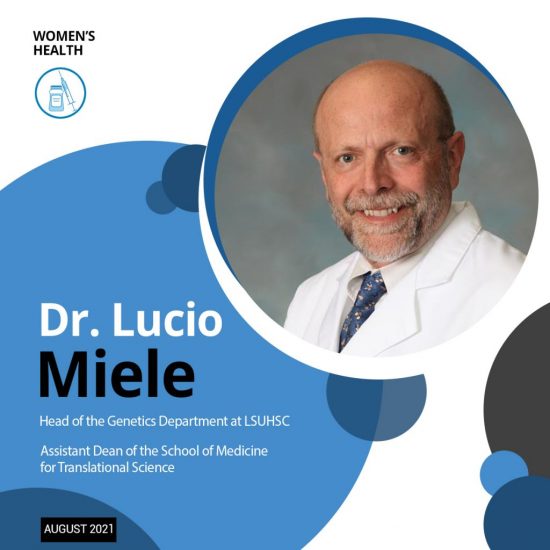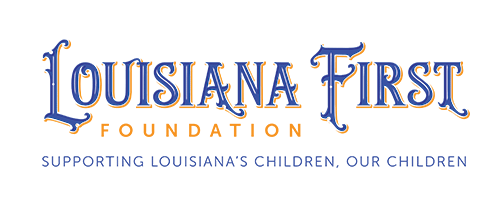Women’s Health
WOMEN'S HEALTH BLOG August 2021
Groundhog Day
Written by
Dr. Lucio Miele
It feels like Groundhog Day: Rising hospitalizations and deaths, mask mandates, working from home. The burden of the pandemic is now concentrated in states with low vaccination rates, like Louisiana. In the coming months, our state and few others will bear the brunt of the suffering, death and disruption caused by COVID-19. Hospitalization rates are three times higher and death rates are two times higher in states where less than half the population is vaccinated compared to states where more than half the population is vaccinated. Patients who recover will also face the risk of “long-haul COVID”, with long-term damage to the lungs, heart or brain. Recent studies show that at least 1 in 4 COVID-19 patients develop “long-haul COVID”, irrespective of age or other conditions.
The enemy has changed. SARS-CoV2, the coronavirus that causes COVID-19, keeps mutating and adapting. The Delta variant and its sub-variants are as contagious as smallpox or measles, and they can affect younger patients, including children. The ICU at Children’s Hospital in New Orleans is filling with COVID-19 patients. Another concern is that the new variants are accumulating mutations that make the virus increasingly “stealthy” and resistant to neutralizing antibodies. It can now reproduce in vaccinated persons and jump from them to unvaccinated persons. That’s the reason for mask mandates. Antibodies from past COVID-19 exposures may not protect against the new variants. The more we let the virus spread, the more variants it will produce. At present rates, SARS-CoV2 can generate over 24 new major variants per year, and may eventually evade current vaccines. This makes it likely that boosters will be needed and that vaccines will have to be periodically updated.
Widespread vaccination is the only way to bring an end to this pandemic. We have safe and effective vaccines that dramatically decrease the risk of severe COVID-19 and death. We must use this advantage before the virus finds a way around it. Unvaccinated patients account for 99.5% of new COVID-19 deaths, while among the over 163 million vaccinated Americans, 99.99% have not had a severe or fatal COVID-19 case.
COVID-19 vaccines deliver a copy of a short snippet of coronavirus RNA: a “messenger RNA” (mRNA) that instructs the body to make a partial version of the Spike protein, the “knob” the coronavirus uses to attach to human cells. The partial Spike made by vaccines trains our immune systems to recognize the “real” one. Anyone infected with the coronavirus will produce billions of copies of the entire viral RNA (~30,000 “letters” long), while vaccines only contain a much shorter fragment of RNA. The Pfizer and Moderna vaccines contain Spike mRNAs in droplets of fat-like substances. The Janssen vaccine is a “replication-incompetent” (unable to multiply) adenovirus that produces Spike mRNA. COVID-19 vaccines cannot change our genes. They simply instruct our cells to make a piece of the viral Spike before breaking down. Another myth is that COVID-19 vaccines affect fertility. The American Society for Reproductive Medicine and the American College of Obstetrics and Gynecology point out that no such effects have been seen in over 100,000 women studied so far. On the other hand, pregnant women are at higher risk of severe COVID-19 and premature delivery.
These vaccine technologies are based on decades of research: mRNA vaccines were already in clinical development for cancer before their spectacular success against COVID-19. Adenovirus-based vaccines have been used in humans since the 1950s and are extremely well-studied. The development of COVID-19 vaccines was not rushed at the expense of safety. The phase 3 clinical trials rapidly enrolled as many or more participants as traditional trials (approximately 40,000 for Pfizer and Janssen and 30,000 for Moderna) in order to detect enough cases of COVID-19 to establish whether vaccines were protective. All participants were evaluated for safety. Thus, the COVID-19 vaccine trials produced at least as much safety data as traditional phase 3 trials. As usual, all trial data was presented in a public meeting to the Vaccines and Related Biological Products Advisory Committee, consisting of independent experts who don’t work for the FDA or industry. The FDA also maintains a publicly accessible website for reports of adverse events (Vaccine Adverse Event Reporting System (VAERS) (hhs.gov)). Over the past year and a half, huge amounts of real-world data have been gathered from the millions of people who have received one of the authorized vaccines. We now know how to recognize and treat even rare side effects. There is simply no doubt that the benefits of COVID-19 vaccines far outweigh the risk of adverse events. Unvaccinated people, including children, are at higher risk than ever from the new variants.
During the darkest days of the pandemic, the hope for a safe and effective vaccine kept us going. Science has delivered. It’s time for all of us to do our part.

Dr. Lucio Miele
Dr. Miele is the Head of the Genetics Department at LSUHSC and serves as Assistant Dean of the School of Medicine for Translational Science. He also serves in the following capacities: LA CaTS Center: Director of Biomedical Informatics; LSUHSC Stanley Scott Cancer Center, Director for Inter-Institutional Programs; UAB CCTS Partner Network: Co-Director. He holds gratis appointments at Tulane University School of Medicine (Medicine/Oncology) and the University of Illinois at Chicago (Biopharmaceutical Sciences). Dr. Miele completed his medical training in his native Italy, followed by a Ph.D. in molecular genetics. Dr. Meile performed his Ph.D. work at the Max-Planck Institute for Molecular Genetics in Berlin. He then completed a fellowship in the Human Genetics Branch (NICHD, NIH, Bethesda, MD). Dr. Miele was a member of the Division of Clinical Trials Design and Analysis and the Division of Monoclonal Antibodies at CBER, FDA, and served as co-chair of the NCI CTEP task force on clinical trials targeting cancer stem cells. Dr. Miele’s research has been NIH funded since 1999, when he left the Federal Government for academia, first as a member of the Cancer Immunology Program at Loyola University Medical Center in Chicago, IL, then as a Program Director in the University of Illinois Chicago Cancer Center, and eventually as Director of Breast Cancer Research and Associate Cancer Center Director at Loyola University Medical Center. Subsequently, as UMMC Cancer Institute Director in Jackson, Mississippi, Dr. Miele oversaw 11 full member faculty and 30 associate members, organized into three basic and one clinical program. Al LSUHSC, Dr. Miele has taken the lead in precision medicine, creating the Precision Medicine Program and becoming the site PI for the Southern “All of Us” Precision Medicine Research Program, as well as receiving two NCI P20 grants on cancer precision medicine. Dr. Miele has authored over 240 peer-reviewed publications in biomedical journals

